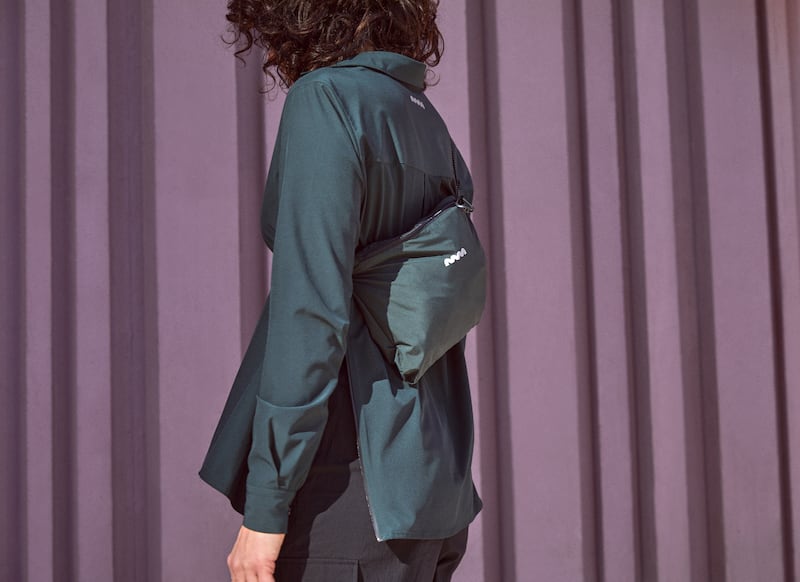
The Business of Fashion
Agenda-setting intelligence, analysis and advice for the global fashion community.

Agenda-setting intelligence, analysis and advice for the global fashion community.

For the last year, technical outerwear brand Early Majority has cultivated a growing community without selling a single piece of kit. When it finally launches to the general public this week, newcomers to the label will face a choice: invest $358 for a lifetime membership or pay a 60 percent premium on the price of its puffers, shells and fleeces.
It’s a bold proposition, especially for a company that has just launched. But the strategy reflects renewed interest in membership models as a handful of fashion brands seek to leverage the engagement and data-gathering benefits of well-worn loyalty strategies to not only drive commercial advantage but also solve tricky sustainability challenges.
Such strategies, so the thinking goes, could generate valuable insights to help brands reduce waste and overproduction. And they could keep products in circulation for longer by incentivising consumers to send back worn items. Long term, memberships could be one way to decouple revenue growth from production, by shifting the relationship between brands and customers away from one based purely on selling stuff by the unit.
“The future belongs to purpose-driven companies,” said former Adidas chief marketing officer Eric Liedtke, who aims to build “the next Supreme or Yeezy, but from a sustainable standpoint. “People are tired of it always being a pay for play model.” Instead, value can be found in offering access to a community or other perks and rewards, Liedtke said.
ADVERTISEMENT
While the executive hasn’t ruled out introducing paid memberships at Unless Collective, the label he co-founded last year, nearer-term he’s simply looking to explore how incentives could be used to encourage participation in the brand’s efforts to take-back clothing for repair, recycling or composting.
Swiss performance brand On is also experimenting with membership models, introducing a subscription service last September in anticipation of the launch of its first recyclable shoe this summer. The brand is betting consumers will shell out $30 a month for a shoe subscription, just like they do for Spotify.
Once the new shoe drops in June, members of the brand’s Cyclon service will be able to trade their pair in for a replacement every six months (roughly the lifecycle of a well-used running shoe, according to On). The goal is to solve a pain point that has plagued efforts to make fashion more circular: the friction associated with getting back old products so they can be recycled.
Shifting the Business Model
The idea for Early Majority has been percolating in founder Joy Howard’s mind since her time as vice president of marketing at Patagonia in the early 2010s. As part of her onboarding, Howard was sent to test out the brand’s products with some of the world’s top athletes. For each sport, the marketing team would give Howard a fresh wardrobe; in contrast, Patagonia founder Yvon Chouinard would consistently join the same sessions wearing exactly the same kit.
For Howard, that onboarding experience clarified the tension between fashion’s drive to sell more products and efforts to curb its environmental impact, even at one of its most sustainability-minded companies. What if instead there was a business model that allowed a brand to focus on only selling a core kit of timeless products, rather than encouraging over-consumption with an endless array of collections?
“It’s the growth logic of most technical apparel companies to make something for each activity,” said Howard, who went on to serve as chief marketing officer at companies including speaker-maker Sonos and Uber rival Lyft before launching Early Majority in 2021. “The membership model really all started with the idea that this hyper-specialisation of product was not serving people or planet.”
Howard is betting that building a base of paying members will enable Early Majority to meet its aim of creating the fewest number of products for the maximum possible number of uses, providing a degree of financial stability from the start, a community well versed in the brand and what it’s trying to achieve, and valuable information to manage volumes, reduce waste and ensure products are really meeting customers’ needs. Long term, the aim is to introduce an annual subscription that would allow members to trade in used products for the brand to resell and recycle.
ADVERTISEMENT
A decade ago, asking consumers to subscribe to a fashion brand might have seemed like a radical proposition but it’s now a widely accepted model for retail marketplaces, media entertainment and even cars.
According to retail futurist Doug Stephens, membership is “the Holy Grail” of any brand aiming to deepen engagement with its customers.

Subscription-based businesses have attracted interest from investors too, who have clocked how memberships grant companies steady and predictable revenue streams, greater engagement with consumers and more data to keep those customers loyal for longer.
Companies like Nike have long deployed loyalty programmes to drive engagement and sales, but fashion has yet to crack the model for paid subscription services, with early forays stalling for various reasons — for example, high logistical costs plaguing rental services’ path to profitability and many subscription box services struggling to retain customers.
But amid a broader retail shakeout, membership models are attracting fresh attention from brands seeking solutions to fashion’s climate impact, an increasingly pressing topic for businesses, consumers and investors.
Early Majority has raised $4.3 million in seed funding from a roster of high-profile angel investors, including Sequoia Capital partner Jim Goetz, founder of venture fund Harrison Metal Michael Dearing, and Lululemon board member and former Tesla and Lyft executive Jon McNeill. Investors, scarred from a wider shakeout in the DTC space, wouldn’t have touched the business without its focus on membership, Howard said.
An Experiment at Scale
At present only a handful of sustainability-focused brands are experimenting with new subscription models, but how they perform over the coming months will serve as a valuable case study for others in the sector.
ADVERTISEMENT
On’s new shoe is due to drop in June, but the company reached 5,000 subscribers within a week of announcing the service’s launch in September. It stopped accepting new subscribers when it hit around 10,000, months ahead of any actual product coming to market. Down payments from early subscribers generated around $300,000 in upfront capital, with regular monthly fees set to kick in when the shoe ships. On’s ambition is to sign up 50,000 subscribers in the first year. That would amount to monthly revenue of $1.5 million from a single product.
“This is an experiment at scale,” said On co-founder Caspar Coppetti, describing the work as “almost a crowdsourcing story.” Engaging with subscribers months ahead of the product launch has allowed the brand to test ideas and explain the new materials and technologies deployed to create a recyclable running shoe in a way that would not have been possible through traditional sales channels, he said.
Longer-term, the company has set a target to make all its products fully circular by the end of the decade. Coppetti foresees additional benefits from using the more detailed customer data gained through subscriptions to better design products, reduce waste and improve forecasting. The company also wants to better understand retention rates and cross-selling opportunities.
To be sure, it remains to be seen whether customers really want yet more regular fees on their monthly credit card bills, and Coppetti acknowledges that for some shoppers a subscription service could diminish the excitement of discovery in the retail experience.
The brands that are likely to find traction with membership models are those that can offer consumers something of real value, Stephens said. That could take a number of forms, such as personal shopping or styling services, exclusive products or early access to new drops.
“Brands are starting to awaken to this idea that we can engineer the hell out of running shoes, but at the end of the day it’s still just a running shoe, and you have to present the customer with something greater than that,” said Stephens. That’s increasingly the case in the wake of the pandemic, which accelerated conversations about fashion’s impact and consumption.
”People will be asking the question: if it’s not just about more stuff, what is it about this brand that’s going to give me a more cultural experience? How is this going to make the world a better place, or my life better? And this just adds rocket fuel,” Stephens said.
Editor's Note: This article was updated on 5 April, 2022. A previous version incorrectly credited the images in the story and referred to On as On Running.
Eric Liedtke, who steered Adidas’ collaborations with celebrities like Kanye West and Beyoncé, is launching a zero-waste, zero-plastic streetwear brand.
The recent shuttering of rental start-up Seasons highlights how logistics costs and uncertain cash flow have dimmed the prospects of a once-hot retail concept.
It’s taken Adidas nearly twenty years to find a way to recycle its sneakers, but can breakthroughs like this solve fashion’s waste problem?

Sarah Kent is Chief Sustainability Correspondent at The Business of Fashion. She is based in London and drives BoF's coverage of critical environmental and labour issues.
The company, under siege from Arkhouse Management Co. and Brigade Capital Management, doesn’t need the activists when it can be its own, writes Andrea Felsted.
As the German sportswear giant taps surging demand for its Samba and Gazelle sneakers, it’s also taking steps to spread its bets ahead of peak interest.
A profitable, multi-trillion dollar fashion industry populated with brands that generate minimal economic and environmental waste is within our reach, argues Lawrence Lenihan.
RFID technology has made self-checkout far more efficient than traditional scanning kiosks at retailers like Zara and Uniqlo, but the industry at large hesitates to fully embrace the innovation over concerns of theft and customer engagement.